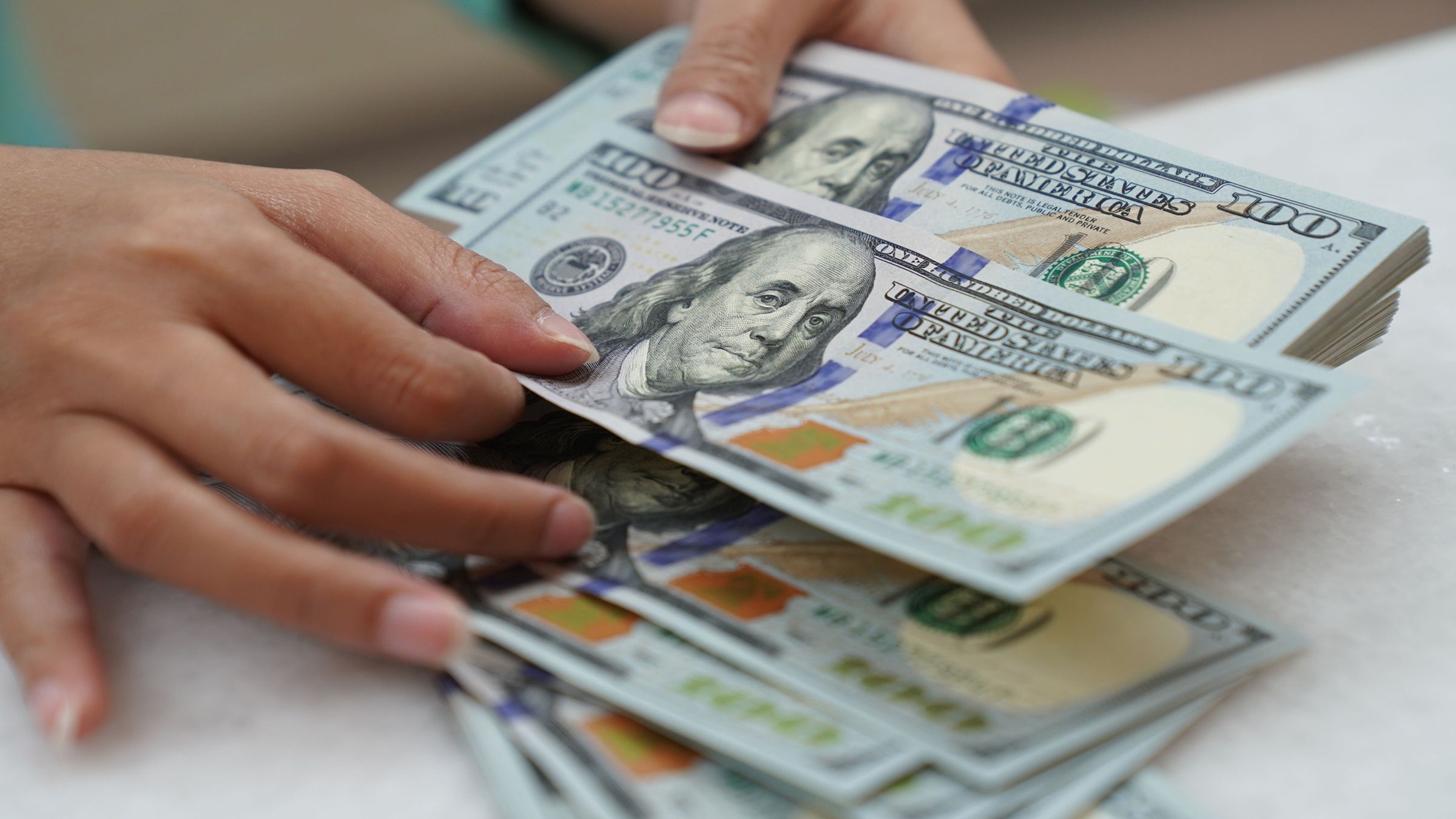The country’s balance of payments slipped to a two year low despite the active market intervention of the Bangko Sentral to curb any further deterioration of the peso to the US dollar.
As of end-September, the country’s dollar reserves slipped to a two-year low, despite Bangko Sentral’s active participation in the foreign exchange market to curb the further depreciation of the peso against the US dollar.
The gross international reserves (GIR) stood at $95.01 billion as of end-September, falling by 2.4 percent from the $97.44 billion as of end-August, data from the central bank showed, Business World reported.
“We’re active, but of course we sell strategically. There are times it is wiser to keep your powder dry and shoot later,” BSP Governor Felipe M. Medalla told reporters on the sidelines of the annual reception for the banking community.
The peso closed at P58.92 per dollar on Friday, losing 26.7 centavos from its P58.653 finish on Thursday, based on Bankers Association of the Philippines data. The peso hit a record low of P59 on Oct. 3
.
So far, the local unit weakened by 15.5 percent or P7.92 from its P51-per-dollar finish on Dec. 31, 2021.
“There are so many things that are happening outside the Philippines right now that is actually causing the dollar to weaken. So, it’s very fluid. I cannot tell you what we will be doing, but we will not allow excessive appreciation (of the dollar),” Medalla said.
The foreign exchange buffer as of end-September was 10.7 percent lower from the $106.5-billion level a year ago and marked the seventh consecutive month of decline since February. It was also the lowest since the $93.46 billion in gross reserves seen in June 2020.
The end-September GIR, which serves as a buffer for liquidity shocks, is enough to cover about 6.8 times the country’s short-term external debt based on original maturity and 4.1 times based on residual maturity.
It is also equivalent to 7.6 months’ worth of imports of goods and payments of services and primary income.
“The GIR came under pressure recently as it is one of the tools being used to support the Philippine peso. However, in 2020 and 2021, the BSP built up its international reserves for a ‘rainy day,’ such as this year,” China Banking Corp. Chief Economist Domini S. Velasquez said.
The BSP built up the GIR during the pandemic, with dollar reserves hitting a record high of $110.12 billion in December 2020.
The BSP is expecting a GIR of $99 billion for this year and $100 billion for next year.
Velasquez added the current GIR is still enough to cover the country’s imports and external debt, and that the drawdown of dollar reserves in the Philippines is aligned with what other central banks are experiencing globally.
Medalla said monetary authorities will have to respond to the US Federal Reserve based on the data, adding that the Fed may do two more 75-basis-point (bp) increases and a 50-bp rate hike.
Asked if the Monetary Board was going to deliver another surprise rate increase for the remainder of the year, Medalla said an off-cycle rate hike is unlikely.
“It’s impossible that we’d have zero response but it’s also not necessarily wise to respond 100% point by point,” he added.
The BSP has raised borrowing costs by 225 bps since May, including a back-to-back 75-bp hike in September and August, and a surprise 75-bp in July to curb inflation and stabilize the foreign exchange market. The benchmark policy rate is now at 4.25 percent.
Headline inflation continued to exceed the BSP’s 2-4% target range as it quickened to 6.9 percent in September, from 6.3 percent in August. Inflation averaged 5.1 percent in the first nine months of the year. The Monetary Board is scheduled to meet again on Nov. 17 and Dec. 15.
“Our forecast is inflation will fall close to 3 percent near the end of next year. When that happens, the current interest rates are not too low anymore,” Medalla said.
Last Friday Medalla said nobody would have predicted the US Fed would be very aggressive in raising policy rates six months ago.
“It turns out, this outlook was wrong. To make matters worse, we had the Ukraine war, which caused an increase in the price of our imports,” Medalla said.
The BSP expects a wider balance of payments gap this year as it sees a current account deficit of $20.6 billion (-5% of gross domestic product) from the earlier forecast of $19.1 billion (-4.6% of GDP).
“This is, to say the least, probably the most difficult time since I joined the Monetary Board more than a decade ago,” Medalla said adding he is confident that the economy should do well.
The Philippine economy is expected to expand by 6.5-7.5 percent this year.
Tags: #BSP, #BOPslips, #depreciation

